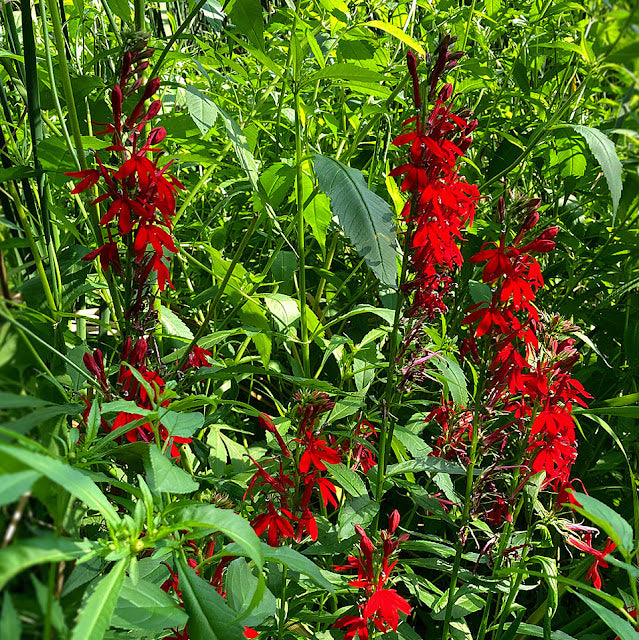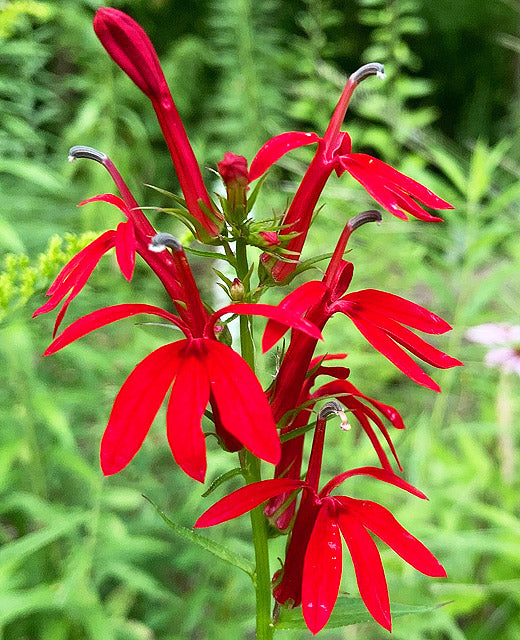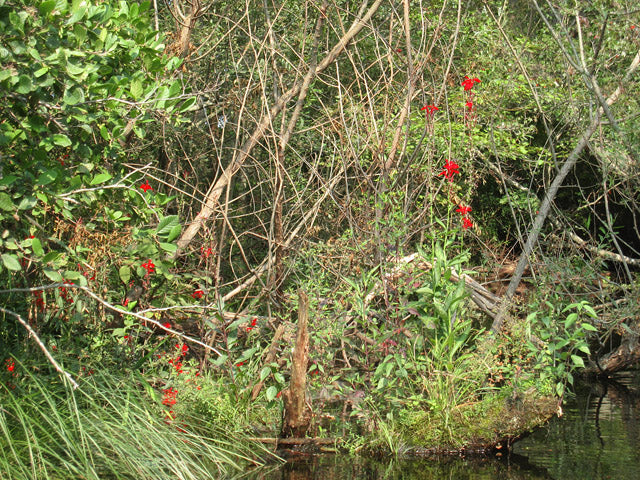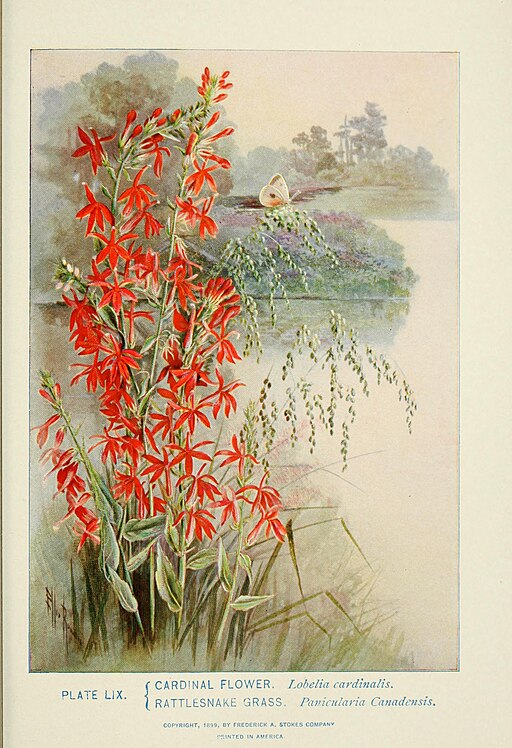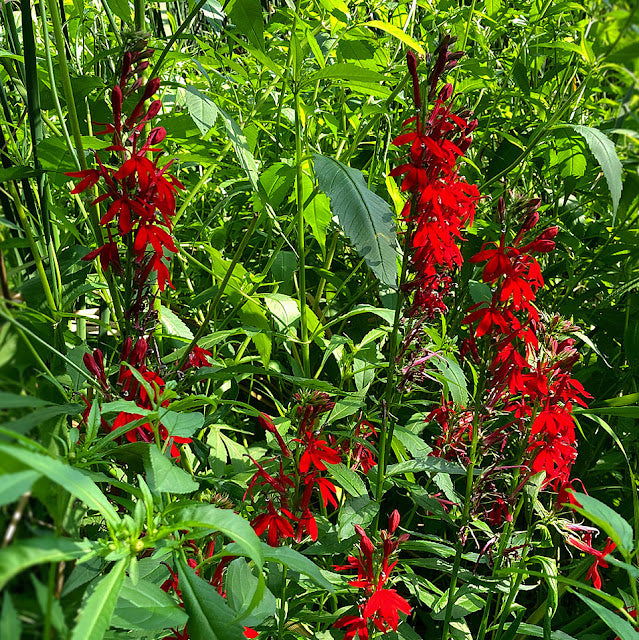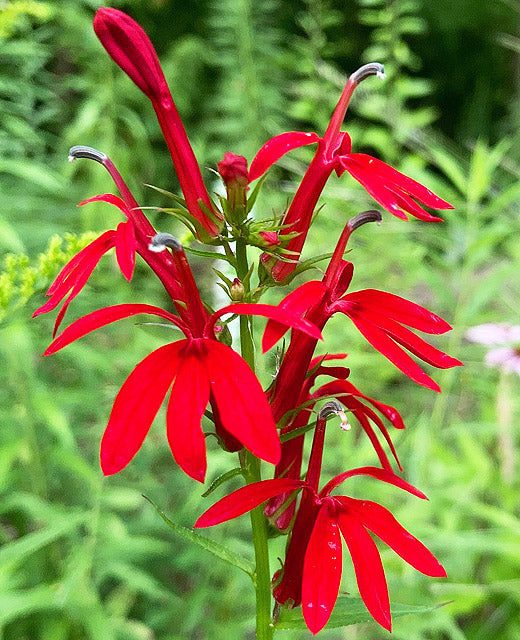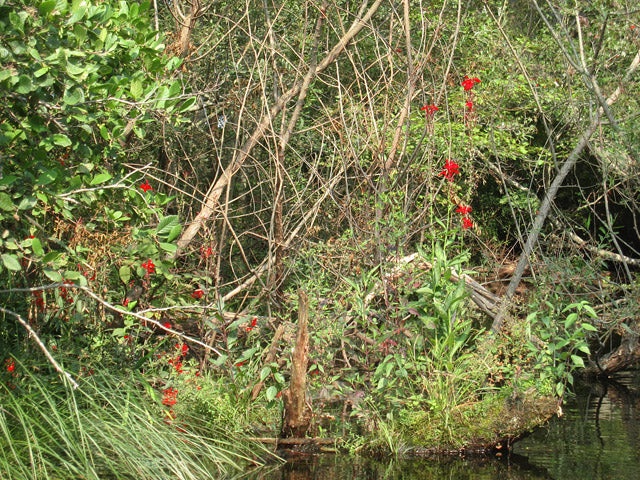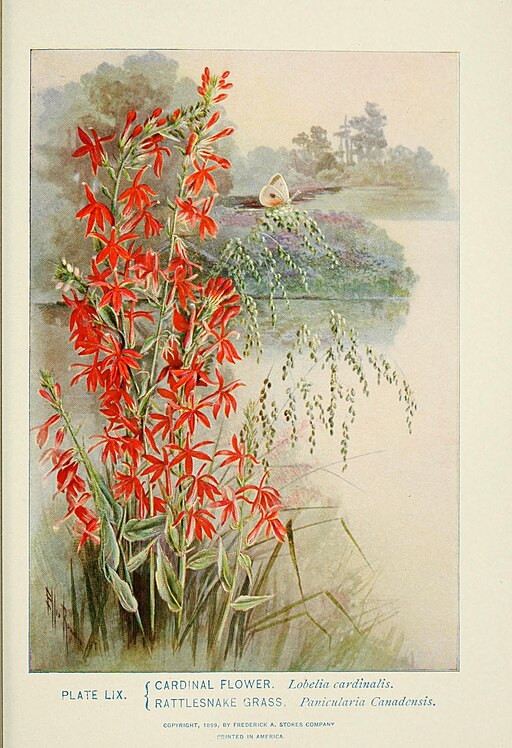Honey Petal Plants
Lobelia cardinalis - Cardinal Flower
Lobelia cardinalis - Cardinal Flower
Couldn't load pickup availability
Sizes available: HPP #1
Basics: zones 4-9, up to 4'x 6-15", part sun to high, light shade (does not care for blazing afternoon sun, but if water needs are met can take quite a bit of sun), summer blooms are red tubular flowers opening from bottom to top around a sturdy stem. Consistent to high water needs and humus-rich soils, clay and sand are okay as long as they are damp. Does not care for stagnant water.
Common names: Cardinal Flower, Indian Pink, Lobelia
Family: Campanualceae
Origin/Distribution: southern New Brunswick to Ontario and southeastern Minnesota down to Florida, Texas, and Southern California, also through Mexico and Central America to northern South America
Habitat: Riparian. Think watery ditches, open stream and river banks, moist wood's edge, low, water retentive and part sun woodland clearings, damp dips in pastures and meadows, the bottom of sloping fields, swamp edge
More: Our Ruby-throated Hummingbird, Archilochus colubris, loves the nectar and is one of the best pollinators for its long, tubular flowers. Swallowtail Butterflies also enjoy the nectar. This plant has been used medicinally and as an aphrodisiac as well as a tobacco substitute (rarely used). However, it is toxic (in large quantities), so proceed with caution. The compound lobeline, which is produced by plants in the lobelia clan, deters browsing. I think it has cut flower potential, but then you are lowering the chances that it will self sow in your garden.. This is a short-lived perennial and like many in that group makes a good amount of seed to cover its bases, as well as maintaining the characteristics of a perennial. Yet, for something that appears to be native all through the U.S., I have found it to be a bit of a heartbreaker. I am going to try it in a good sized container with regular fish emulsion and a continual supply of moisture from a saucer. I will keep you posted.
Nursery: Van Berkum
Image credits: Frank Meuschke of Shelterwood Gardens; image #4 is from Wikimedia Commons
